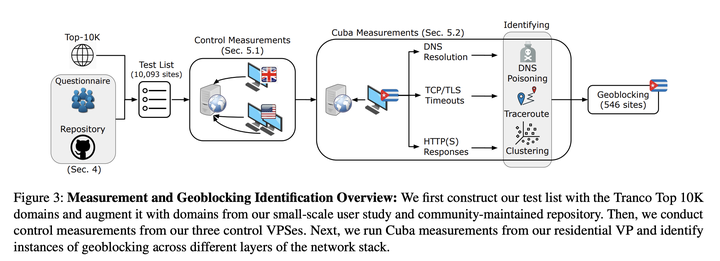
Abstract
We present one of the first in-depth and systematic end-user centered investigations into the effects of sanctions on geoblocking, specifically in the case of Cuba. We conduct network measurements on the Tranco Top 10K domains and complement our findings with a small-scale user study with a questionnaire. We identify 546 domains subject to geoblocking across all layers of the network stack, ranging from DNS failures to HTTP(S) response pages with a variety of status codes. Through this work, we discover a lack of user-facing transparency; we find 88% of geoblocked domains do not serve informative notice of why they are blocked. Further, we highlight a lack of measurement-level transparency, even among HTTP(S) blockpage responses. Notably, we identify 32 instances of blockpage responses served with 200 OK status codes, despite not returning the requested content. Finally, we note the inefficacy of current improvement strategies and make recommendations to both service providers and policymakers to reduce Internet fragmentation.